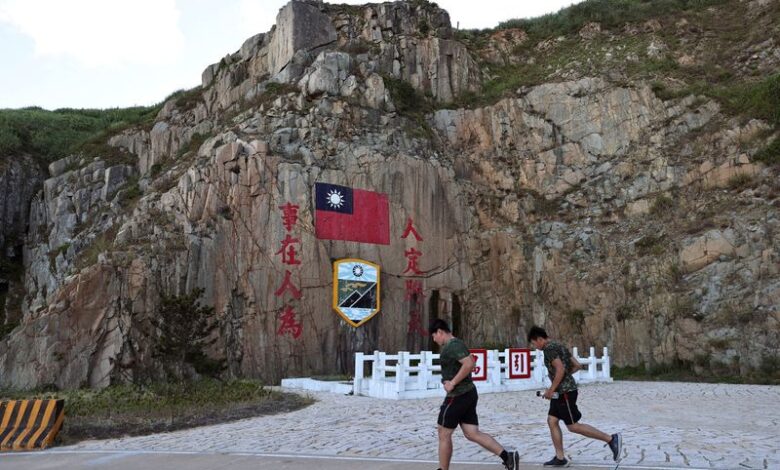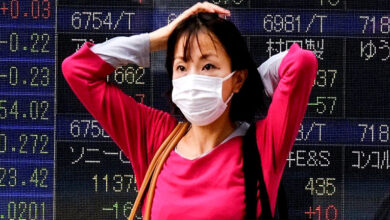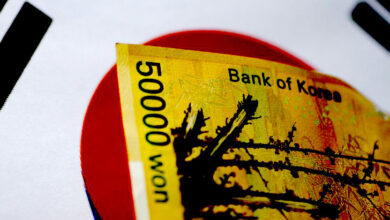Analysis: Investors contemplate their strategies as the likelihood of a China-Taiwan conflict increases.

Reuters: SINGAPORE Long regarded as a highly improbable event, analysts claim that the danger of a Chinese invasion of Taiwan has moved to the forefront of risk radars for global money managers and is now influencing their investment choices.
According to fund managers, their customers are asking more questions about the likelihood of a Chinese invasion of Taiwan. Taiwan plays a significant role in asset allocation strategies, and even though none of them have made any specific trades linked to that risk, their overall exposure to China has decreased for other geopolitical reasons.
Long a source of friction between the United States and China, Taiwan has recently become even more so after a suspected Chinese spy balloon was shot down and the United States expanded a programme in which its troops train Taiwanese forces.
In his remarks at the Communist Party Congress in October, when he was elected to a record-breaking third term as leader, Chinese President Xi Jinping repeatedly stated that China would seek control of the self-governing island and would never give up the right to use force.
Tsai Ing-wen, the president of Taiwan, has frequently vowed to uphold peace and refrain from inciting conflict. She has stated that Taiwan will defend itself if attacked and has proposed holding talks with China.
Investors are now more wary of conflict risk as a result of Russia’s invasion of Ukraine at the beginning of last year, analysts said.
According to a senior analyst at a U.S. fund house who wished to remain anonymous due to the delicate nature of the subject, “Europe can’t afford it if something goes awry in the Taiwan Strait since some investors have… made quite a few losses in Russia.”
He claims that many clients have inquired about it and that his company has been keeping an eye on the danger.
It hasn’t reached the stage where making a few small changes to your exposure is really necessary, he said.
“We experienced a spike after the Russian invasion of Ukraine, and we are now back to comparable levels to where we were a year ago.” “The level is slightly above normal for 2021, though,” said Goldman Sachs strategist Alvin So.
Since March of last year, the spreads on Taiwanese 5-year credit default swaps have remained at 176 basis points, which is nearly 30 bps higher than where they were at the beginning of the year.
We can’t take anything for granted when it comes to geopolitics. Will Malcolm, a fund manager at Aviva (LON:AV) Investors, said, “The last 12 to 18 months have taught us that.”
An inquiry for comment was not quickly answered by the Chinese foreign ministry. Taiwan’s chief diplomat, Wang Yi, has stated that peace and the “independence forces” in Taiwan are incompatible.
At the Munich Security Conference on February 18, he declared, “If we want to maintain peace across the Taiwan Strait, we must firmly oppose Taiwan independence, and we must resolutely maintain the one-China policy.”
Low odds, big surprise
In actuality, Malcolm said, “I believe the ramifications will be far more severe than necessarily worrying about which company you should be holding in the markets if there is eventually a conflict between China and Taiwan.” Given the extensive direct and indirect economic ties to China and Taiwan, you would still be considerably exposed even if you parked all of your assets in the United States.
Some funds have scaled back their investment in China and are now looking for companies that offer protection from geopolitical unrest.
At Federated Hermes (NYSE: FHI), client portfolio manager Jordan Stuart says he reduced his exposure to China last year while holding onto a few small-cap companies that could “fly under the radar.”
Instead of owning multinational industrial businesses with exposure to China or other countries, he said, “we’re going to pivot to the more industrial and capex cycle of the reshoring trade.” “I’m going to stick with smaller, more local brands that would support the capex cycle.”
As with the COVID-19 pandemic and Russia’s invasion of Ukraine, a Chinese invasion of Taiwan would significantly disrupt supply chains and create unrest in international markets.
Ships carrying cargo from East Asia to the United States and Europe frequently travel the Formosa Strait. Additionally, Taiwan has become a crucial front in the supply chain for the chip business.
For China to simply stir up business in that sector of the market, Stuart said, “China wouldn’t have to attack Taiwan or actually get hot.” “The entire world economy could be completely disrupted by that gridlock.” “That is underrated in my opinion.”





